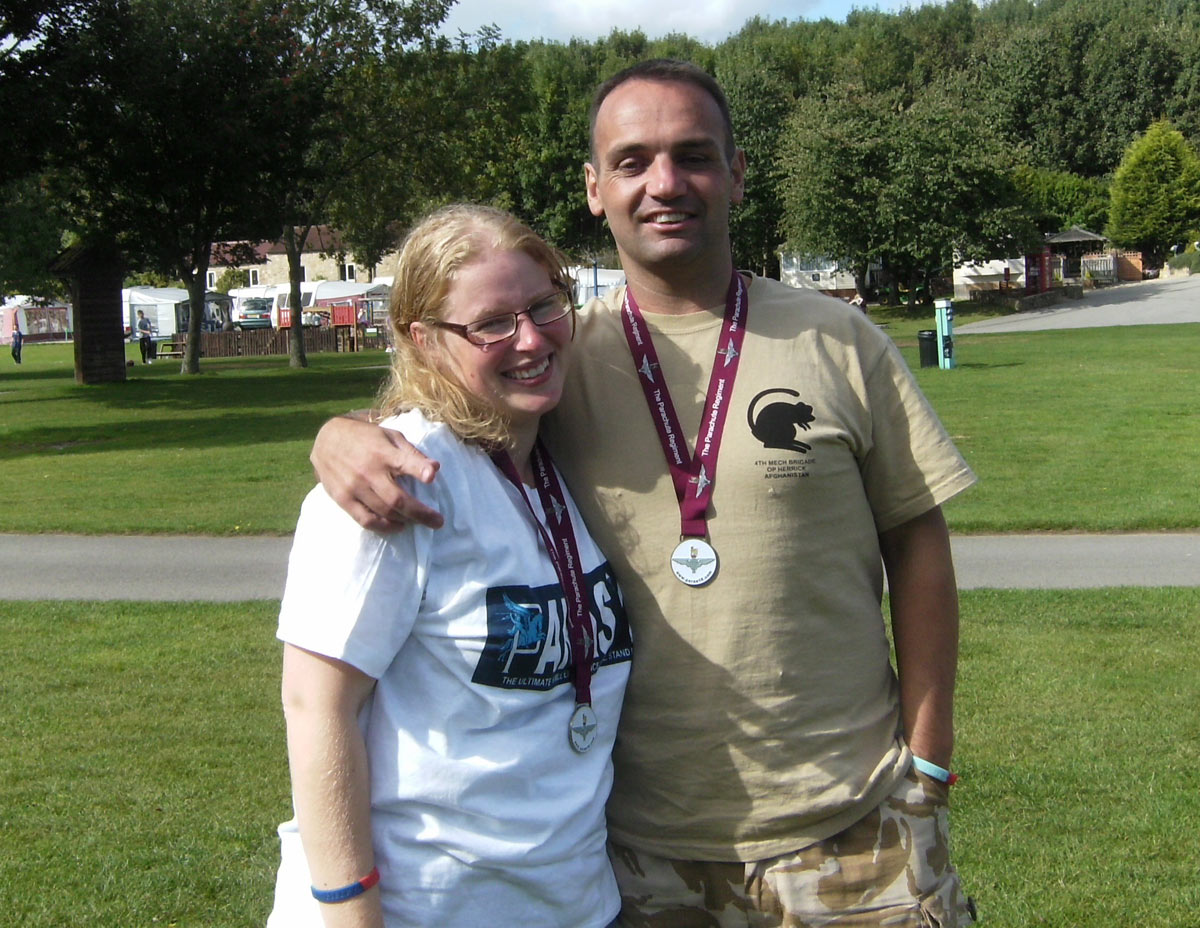So, you’re a TA or Reservist family and you hear the dreaded words, ‘I want to go on operations’. We all have different experiences when our loved ones go on deployment. Sara Sumner, partner of a TA soldier, has some tips on how to survive, based on her own experience…
Don’t have a panic attack!
Try to have a serious discussion about what it means for you all. Find out what their role is and who they will be training with. Your soldier may be attached to a unit miles away from where you live, so may be away for longer.
Let them know how you feel about it
What are you worried about? When my partner told me he was going to Afghanistan, my initial question was ‘How will I know what is happening to him?’ This sounds a little selfish, but we were not married or living together. I was in another part of the country and not near his parents or the TA Centre. I had little knowledge of the Army.
Be recognised
Consider asking your soldier to nominate you as next of kin if you are not married. My partner nominated me as well as his father which meant the Army recognised me as a person to officially keep in the loop. It also allayed my fears of not knowing if something had gone wrong. I was invited to events as part of the welfare package and kept informed of R&R and homecoming dates.
Help yourself
If you’re invited to events such as deployment briefings, try to attend them, the information provided is essential. The pre-deployment briefing was one of the scariest things that I have done. I went on my own to a different squadron to my partner’s as it was closer to where I lived. Having no experience of the Army and driving into a camp, the first thing I did was park in the wrong place and got told off by the guard!
I sat in the corner on my own for a bit until a few took pity on me. That was the start of my journey, and I am very glad that I went as it helped me immensely. The contact that I had with my partner was limited, so this made me to feel a little more in touch.
Keep your mobile phone with you
This sounds a bit stupid, but I missed his first call and I felt terrible. It was a horrible feeling not to be able to ring him back. After that I took the phone everywhere – even the bathroom. If you’re working, explain that you might have to answer the phone during work hours or meetings. My soldier only had use of a phone, which was patchy, no internet and very irregular post; weekly calls were a lifeline.
Communications
Be prepared for poor communication channels. I was lucky if I had one half an hour call once a week. My letters often arrived six weeks after sending and there was no email. Share news with your friends and family as your soldier will not generally get time to contact everyone. It’s a good reason to get to know each other better.
Be prepared for changes of plans
The Army may make last minute changes to R&R or return dates, which can be frustrating and inconvenient, but can’t be helped. Try to be flexible; I wouldn’t recommend booking holidays. And don’t blame your soldier, it’s not their fault!
Give yourself time to adjust
Deployment is an experience like no other, for both the soldier and for those of us left behind. I don’t think we will really understand what it is like for them, like they will never really understand what it is like for us. You will need time to adjust to them not being there and time to get back to normality when they return.
The Army has a responsibility to provide welfare to TA families whilst their soldier is deployed. Families do not always get the same levels of support, so if you are left out in the cold, contact your soldier’s unit or talk to AFF at us@aff.org.uk to see what they can do to help – you should not feel alone!
Useful info
Your nearest HIVE – check online at www.gov.uk/army-hive-information-service
Army Welfare Information Service – AWS-Welfareinformationservice@mod.uk or 01980 615975 or 0800 032 6443
Confidential SSAFA Forcesline – 0800 7314880 (UK)
Joint Casualty and Compassionate Cell (24hrs) – +44 (0) 1452 519951
www.army.mod.uk/welfare-support
Army Intranet – your soldier can access information via DII
Army Reserve Quarterly (ARQ) – sent to all units
Reserves Update – produced as required and sent to all units
Soldier magazine – dedicated Army Reserves page.


